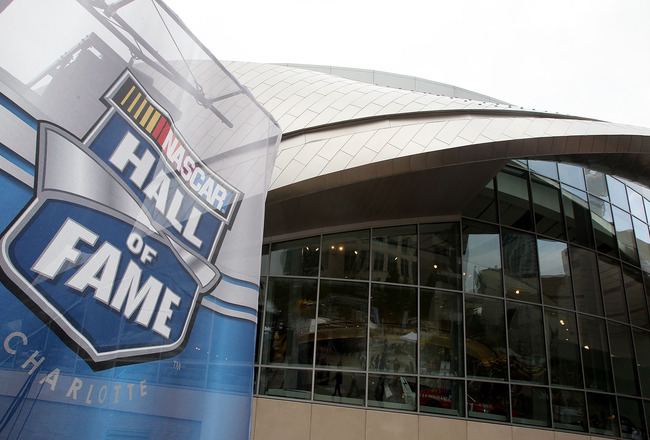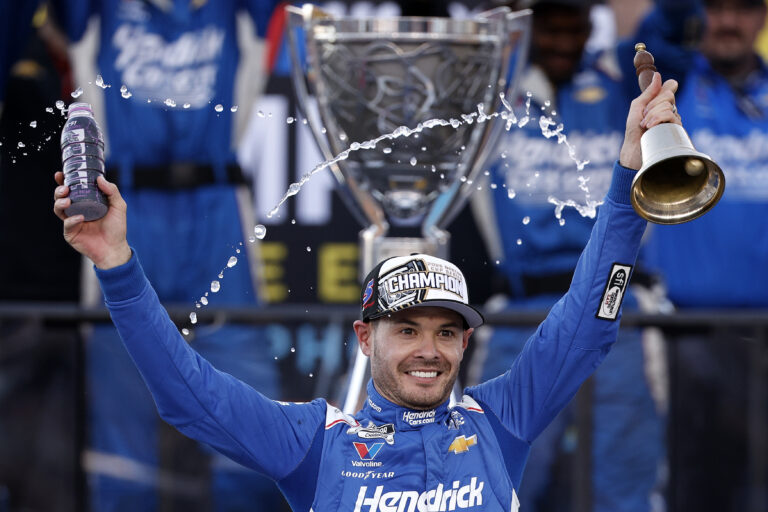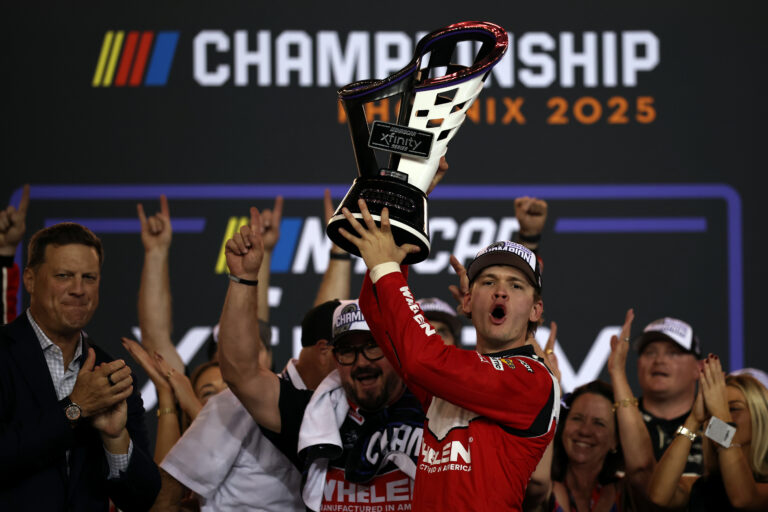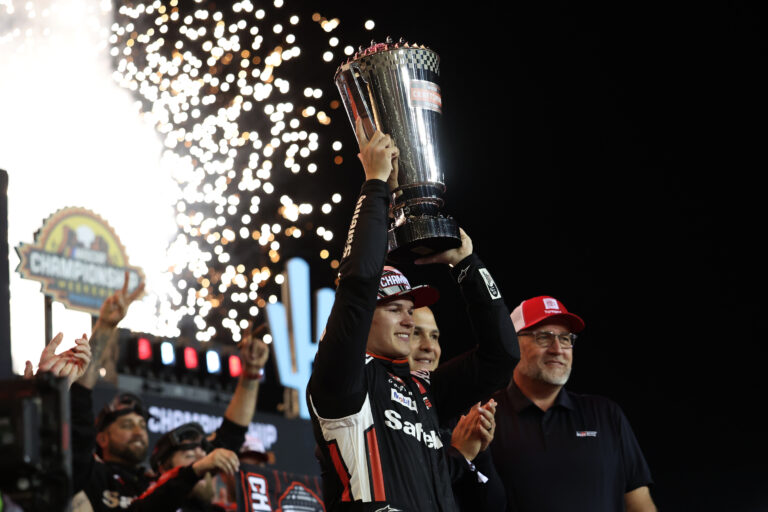
The 2014 class for the NASCAR Hall of Fame in Charlotte was decided upon Wednesday afternoon.
The voting panel for the Hall of Fame’s fifth class consisted of; 54 media members, track operators, retired racers and others active in the sport to select five of the 25 inductees to make up the class of 2014.
From those 25, the voting panel selected; Tim Flock, Maurice Petty, Dale Jarrett, Jack Ingram, and Fireball Roberts as the newest members to the NASCAR Hall of Fame.
Flock was the top vote-getter in the class, collecting 76-percent of the ballots of the 54-member panel.
Petty, who worked for the Petty dynasty which consisted of 200 wins with eight in the Daytona 500 (seven with Richard Petty, one with Pete Hamilton), becomes the first mechanic to be elected to the Hall of Fame.
Ingram is the first driver selected to the Hall of Fame who primarily raced in what is now the Nationwide Series.
The induction ceremony for the 2014 class will be January 29 on Fox Sports 1.
More on the five new members of the NASCAR Hall of Fame.
Tim Flock: A two-time NASCAR premier series champion, Flock was one of the sport’s first dominant drivers. In 187 starts, Flock had 39 victories, a total that still ranks 18th on the all-time wins list.
Flock won his first series title in 1952 while driving Ted Chester’s Hudson Hornet, and his second in 1955 driving Carl Kiekhaefer’s Chrysler. He dominated that season, posting 18 wins, 32 top fives and 18 poles in 39 races.
Flock’s 18 wins stood as a single-season victory record until Richard Petty surpassed it with 27 wins in 1967.
Maurice Petty: The chief engine builder at Petty Enterprises, Maurice Petty becomes the fourth member of the dynasty to be chosen for membership in the NASCAR Hall of Fame – following his older brother Richard, father Lee and his cousin Dale Inman.
The man simply called “Chief” supplied the horsepower that propelled Richard Petty to a majority of his record 200 NASCAR victories, plus his seven NASCAR premier series championships and seven Daytona 500 victories.
Lee Petty, Buddy Baker, Jim Paschal and Pete Hamilton were also among those who won with his engines.
Petty had a brief driving career – 26 premier series races with seven top-five and 16 top-10 finishes between 1960 and 1964 – but was satisfied to work behind the scenes as one of the top engine builders ever seen in the sport.
Dale Jarrett: Dale Jarrett personified big-stage performances. A three-time Daytona 500 winner and two-time winner of the Brickyard 400 at Indianapolis Motor Speedway, Jarrett excelled under NASCAR’s brightest spotlights.
His 32 NASCAR Sprint Cup Series victories – 21st all-time – also include the Coca-Cola 600 at Charlotte Motor Speedway. Jarrett won the 1999 NASCAR Sprint Cup Series championship, and recorded six additional top-five championship finishes.
With father Ned, the Jarretts are only the second father-son combination with NASCAR premier series championships after NASCAR Hall of Famers Lee and Richard Petty.
Ned Jarrett was inducted into the NASCAR Hall of Fame in May 2011. Ned and Dale Jarrett become the third father-son duo selected to the NASCAR Hall of Fame, following Bill France Sr. and Bill France Jr., and Lee and Richard Petty.
Jack Ingram: The NASCAR Nationwide Series has had a variety of incarnations through the years but when considered collectively, an argument can be made that Jack Ingram is the series’ all-time greatest driver.
Before the formation of the series, Ingram won three consecutive championships, from 1972-74, in its precursor – the Late Model Sportsman Division. When the NASCAR Busch Series was formed, he won the inaugural title in 1982 and again in ’85. In his 10 years of competition in what was called the NASCAR Busch Series, Ingram had 31 wins, a record that stood until Mark Martin broke it in 1997.
All but two of Ingram’s 31 wins came on short tracks.
Fireball Roberts: Glenn Roberts, who got his legendary nickname from his days as a hard-throwing pitcher in high school, is perhaps the greatest driver never to win a NASCAR title.
He was arguably stock car racing’s first superstar, an immensely popular prototype for some of today’s competitors who are stars on and off the track. During his career he often came up big in the biggest events, winning the Daytona 500 in 1962 and the Southern 500 in 1958 and ’63.
Overall, he won seven races at Daytona International Speedway, starting with the Firecracker 250 in the summer of 1959 – the year the speedway opened.





RT @OnPitRoad_: NEW: Jarrett highlights 2014 NASCAR Hall of Fame class #NASCAR http://t.co/BnQqSmEi6d